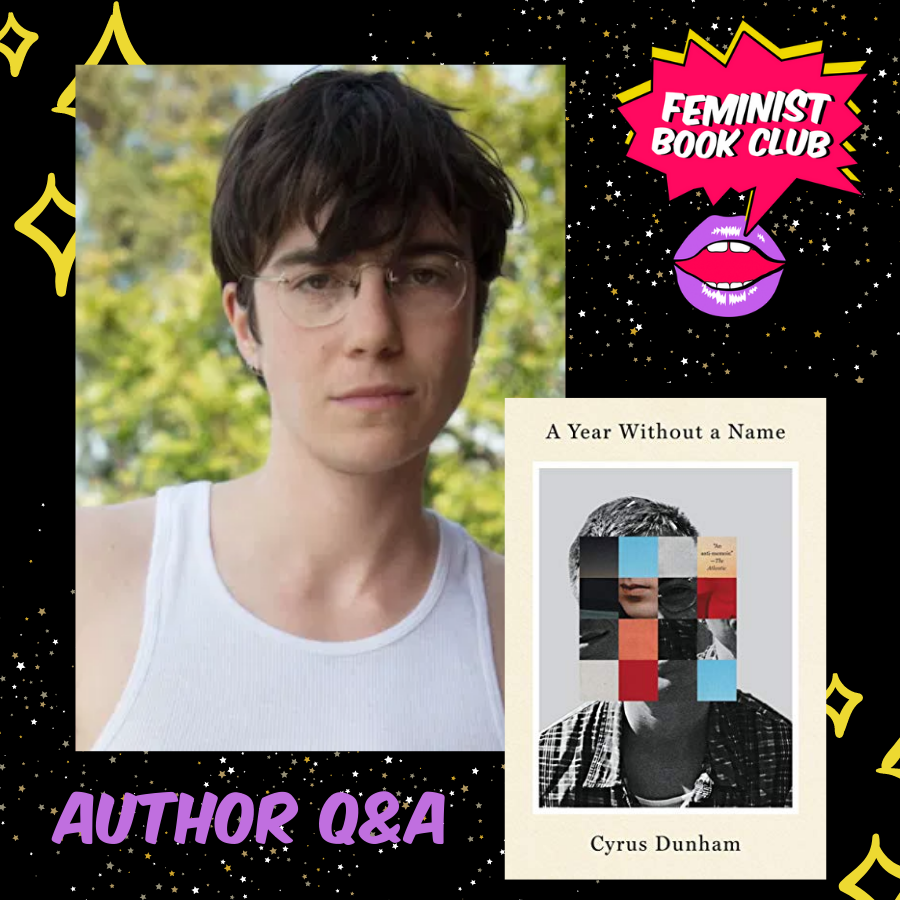For our Non-Binary Voices theme, our book club pick was A Year Without a Name by Cyrus Dunham, a memoir in which they explore their gender identity. The book is an intimate journey through their experiences, and was recently updated with a new preface. Feminist Book Club members got the opportunity to sit for a Q & A with Cyrus Dunham via Zoom in late June. They were so warm and open with their answers, and provided thought-provoking insight. Read on for some highlights from that discussion.
Their Connection with the Book
When asked about how they feel about their book, Cyrus responded by saying that it changes everyday. They said they were in a weird relationship with the book, and the release of this new book allowed for a new relationship with it because they got to write a new introduction. Their process is focused on writing about questions and through questions, rather than writing into answers. This new edition was a chance to update some of their thinking:
“For me, writing better is about deepening my practice of questioning, moving towards heightened clarity, trying to get better and better at writing in a way that will help me connect with other people. When I feel weird about the book, one of the things that I think about is like this book isn’t just about me, this book is actually about a moment in time and however this book is remembered… I’m interested in how it will be historicized as part of a moment in time when the discourse around gender and gender questioning was starting to be pushed and possibly disseminated through culture in newer and different and perhaps more mainstream ways than it was before.”
Thoughts on a Non-Binary World
One member asked a particularly deep question: What would a non-binary world look like, and if you had grown up in a non-binary world, how do you think your life would have been different?
“One of the most violent things, if not the most violent thing, about the gender binary is not even necessarily what it does to people who identify as trans and gender nonconforming, though of course that violence is immense, but the demand that it makes on every single one of us, however we identify, whether as cis or trans, to meet these impossible standards of masculinity and femininity that are actually unreachable for anyone. You would be hard-pressed to find anyone in our culture who isn’t living with the pain and the suffering of perpetually feeling like they have failed to be what they are supposed to be and that that is actually a shared cultural experience and affect that we all live inside of, however we identify, whether we like things about the gender we were assigned at birth or not.”
“So I think like the first place I go to when I imagine a more non-binary world isn’t necessarily a world without gender, because clearly there’s things about gender that we like… [A non-binary world] would be a world where we’d have so much more gentleness and compassion for ourselves, and actually be able to see the specific and innate beauty that we hold.”


